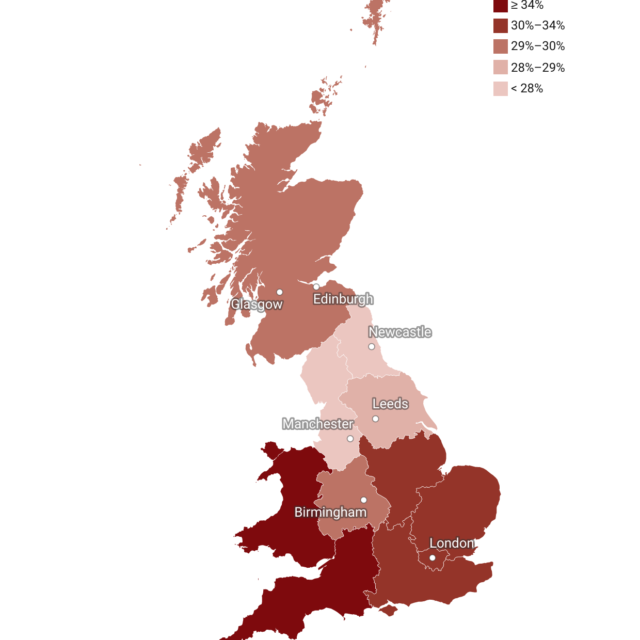NIESR Press Release – New directions in social sciences and policy ideas
New research published by NIESR
FOR IMMEDIATE RELEASE
Issue No. 255 of the National Institute Economic Review, published today, focuses on how social science can help us understand issues related to regional inequality, social exclusion, and the unevenness of digitalisation, and provide policy ideas to help mitigate their effects. The issue contains articles that relate to NIESR-ESRC Festival of Social Science organised in November 2019, as well the 2019 Anglo German Foundation Lecture at DIW Berlin.
Leading experts in the field provide in-depth analysis of some key economic challenges for the future wellbeing of our societies. The articles cover a wide range of topics including regional digital infrastructure, productivity growth, economic injustice, economic expectations, and how to make regional policy more inclusive.
The five main Articles in addition to the Commentary and Notes and Contributions are:
- How to not miss a productivity revival once again, by Bart van Ark, Klaas de Vries and Abdul Erumban (The Conference Board, New York, University of Groningen and The Productivity Institute & Alliance Manchester Business School)
- Do economists expect too much from expectations?, by Martin Weale, (King’s College, London)
- The regional consequences of new digital infrastructure: Can Welsh SMEs gain an edge from access and adoption of superfast broadband?, by Dylan Henderson, Max Munday and Annette Roberts (Cardiff Business School)
- Aspirations failure, disadvantage traps and inclusive regional policy, by Sayantan Ghosal (Adam Smith Business School, University of Glasgow)
- How long does economic injustice last?, by David Miles (Imperial College London)
Dr Corrado Macchiarelli, NIESR Principal Economist, who edited the collection, said: “The recent Covid-19 pandemic has presented societies with a bewildering range of economic, social and ethical questions. These questions require both immediate and longer-term answers, including the need to reconsider our socio-economic networks. The papers in this special issue make clear how social science can contribute to our re-thinking of tools and policy ideas. Social science can help us make sense of policies today, while supporting long-term and structural responses, which will require both greater social engagement and society-oriented considerations.”
Summary
Over the past 15 years, productivity growth in advanced economies has significantly slowed, giving rise to the productivity paradox of the New Digital Economy – that is, the notion of increased business spending on information and communication technology assets and digital services without a noticeable increase in productivity. Van Ark et al., drawing from the Inaugural Prais Lecture during NIESR Festival of Social Science, argue that time lags are the most important reason for the slow emergence of the productivity effects from digital transformation. The paper provides evidence that underneath the slowing productivity growth rates at the macro level, signs of structural improvements can be detected and that increases in innovation competencies of the workforce are concentrated in industries showing faster growth in labor productivity.
Modern economic theory gives an important role to expectations as an influence on outcomes. Weale, from his Inaugural Dow Lecture at NIESR Festival of Social Science, reviews the evidence on how well measures of expectations conform to outcomes. The paper confirms earlier results that measures taken from financial markets perform poorly as predictors of outcomes. Looking at the individual responses to the Confederation of British Industry’s Industrial Trends Survey, it does find, however, that there are significant correlations between expected and realised outcomes of wages, prices, costs orders and employment. It also finds some evidence that actual prices reflect expected future prices, but with a coefficient much lower than economic theory predicts. While expectations are undoubtedly important, economists need to build on work looking at how they are derived instead of simply assuming they are rational.
Across the United Kingdom public (and private) resources have been targeted on improving broadband infrastructure. While this has served to provide new opportunities for households and firms, there has been some debate around the ability of firms to take full advantage of the opportunities that arise through this evolving infrastructure. In this respect, there has been particular debate on how far small- and medium-sized enterprises (SMEs) have taken up the challenge of effectively engaging with the resource. Drawing on the case of Wales, Henderson et al. explore the digital maturity of a sample of Welsh SMEs. The paper provides evidence of how far SMEs are successfully engaging with the new opportunities available through broadband and develops a typology of firms according to their engagement. The paper then explores how these differences produce policy implications.
This paper examines the implications for regional policy of new research on the role played by a failure in the ‘capacity to aspire’ in perpetuating disadvantage traps. After a brief review of the magnitude of the challenge that regional policy needs to confront, Ghosal provides a summary of the theoretical and empirical literature on poverty and aspirations failure (and the associated loss of agency, beliefs and self-efficacy). The key implication for the design of an inclusive regional policy is that it needs to address simultaneously the sources of external constraints (such as the availability of resources or adequate infrastructure) and mitigate the aspirations failure inherently linked to persistent disadvantage.
Drawing upon the 2019 Anglo German Foundation Lecture at DIW Berlin, this article by Miles assesses whether economic injustices that took place in the past still have significant implications for the material welfare of people many years later. That issue is central to the question of how fair is the distribution of wealth and income today. It is also relevant to issues of reparations for past wrongs. The author finds that in standard neoclassical models of economic growth the lingering effects of injustice from more than 70 years ago are generally small. But effects can last much longer once we allow for impacts of past injustices to be transmitted through human capital accumulation as well as physical capital.
ENDS
——————————————————-
Notes for editors:
The research reflects the authors’ views and does not necessarily reflect the views of the institutions that they may represent.
For full copies of these papers and queries for the authors please contact the NIESR Press Office: press [at] niesr.ac.uk / l.pieri [at] niesr.ac.uk / 07930 544631
The National Institute Economic Review is a quarterly journal of NIESR. NIER is published by Cambridge University Press (CUP). Founded in 1534, CUP is the world’s oldest publishing house and the second-largest university press in the world.
The Review is published in February, May, August and November, and it is available from Cambridge University Press at journals [at] cambridge.org
Further details of NIESR’s activities can be seen on http://www.niesr.ac.uk or by contacting enquiries [at] niesr.ac.uk. Switchboard Telephone Number: +44 (0) 207 222 7665



